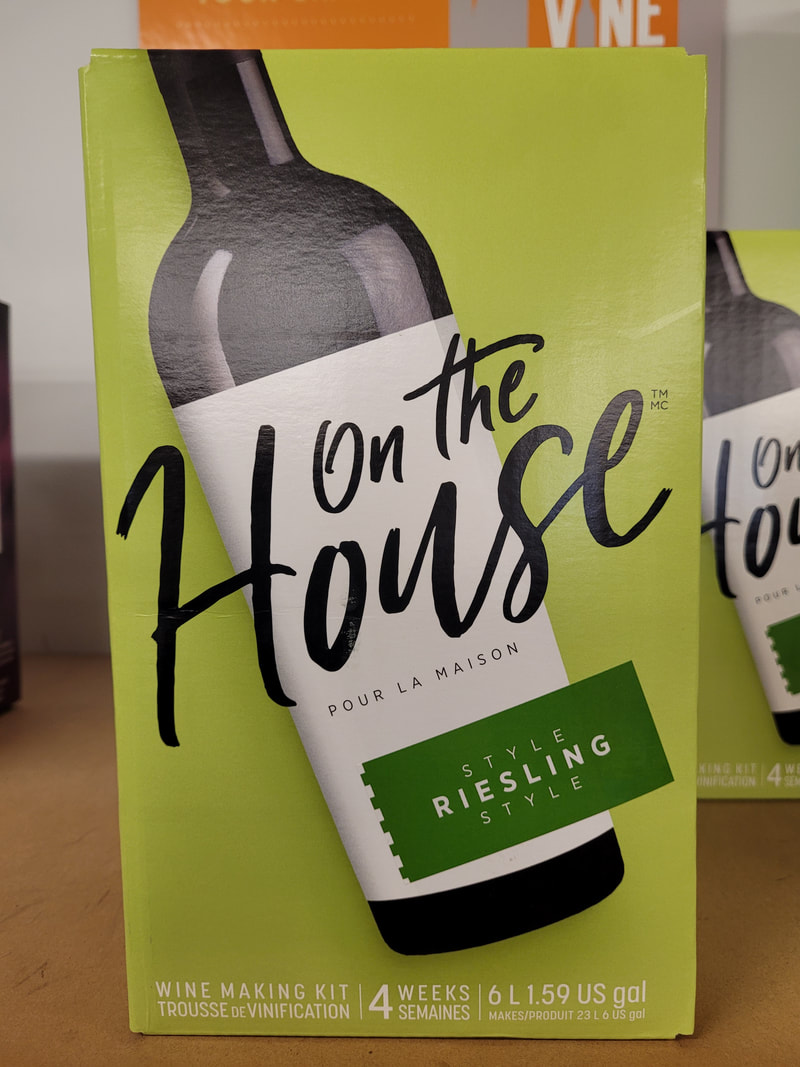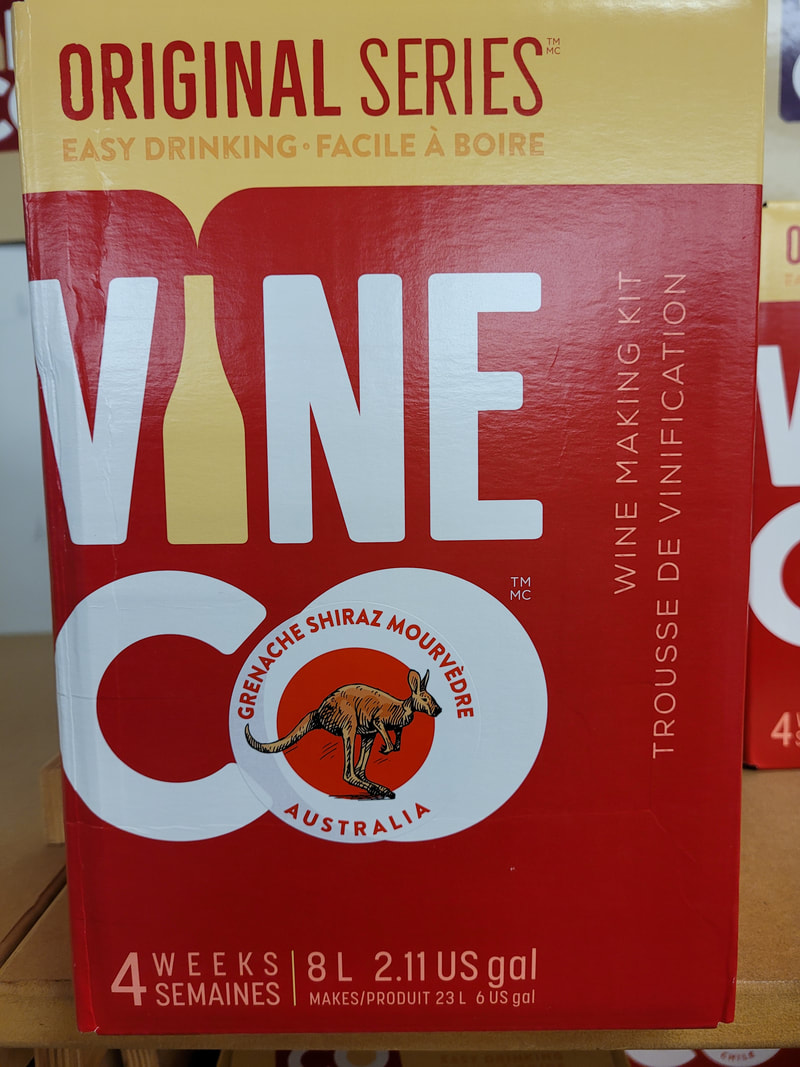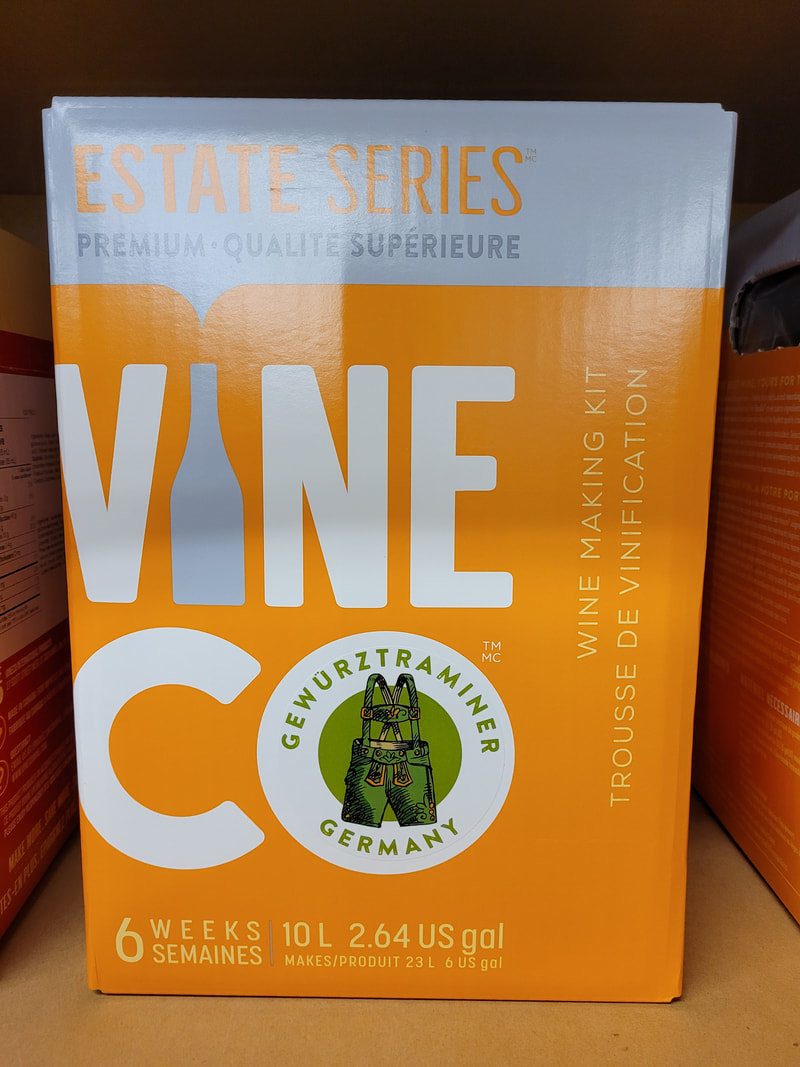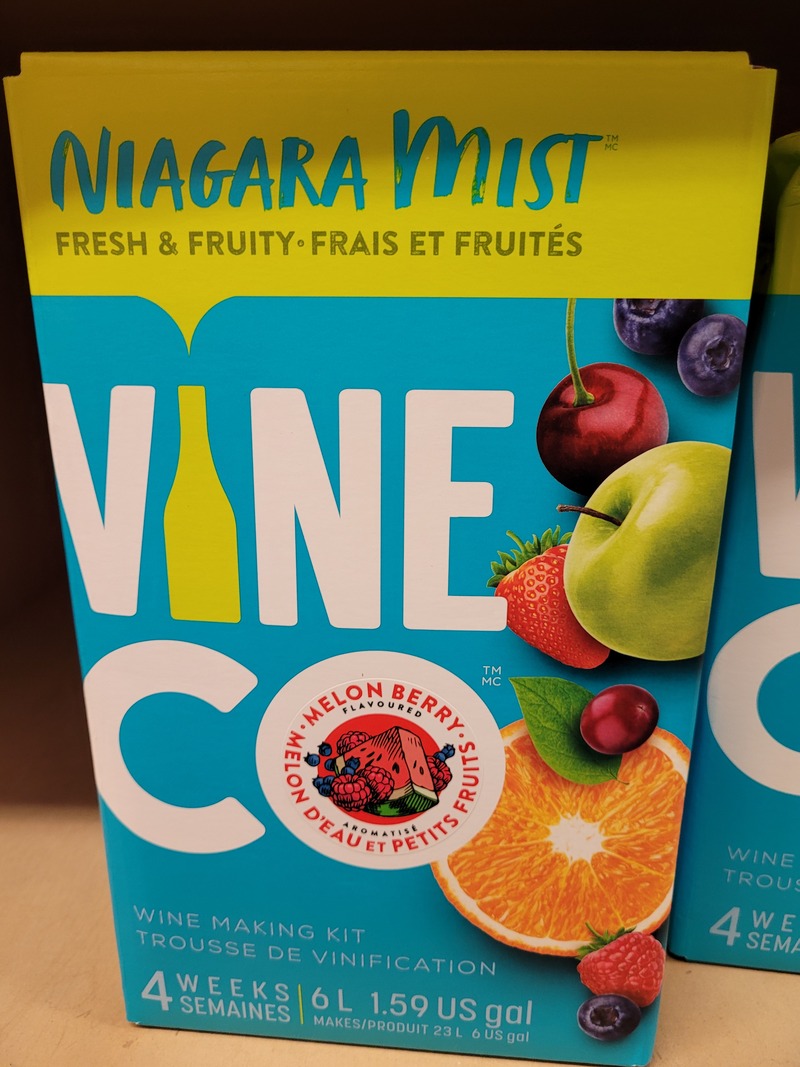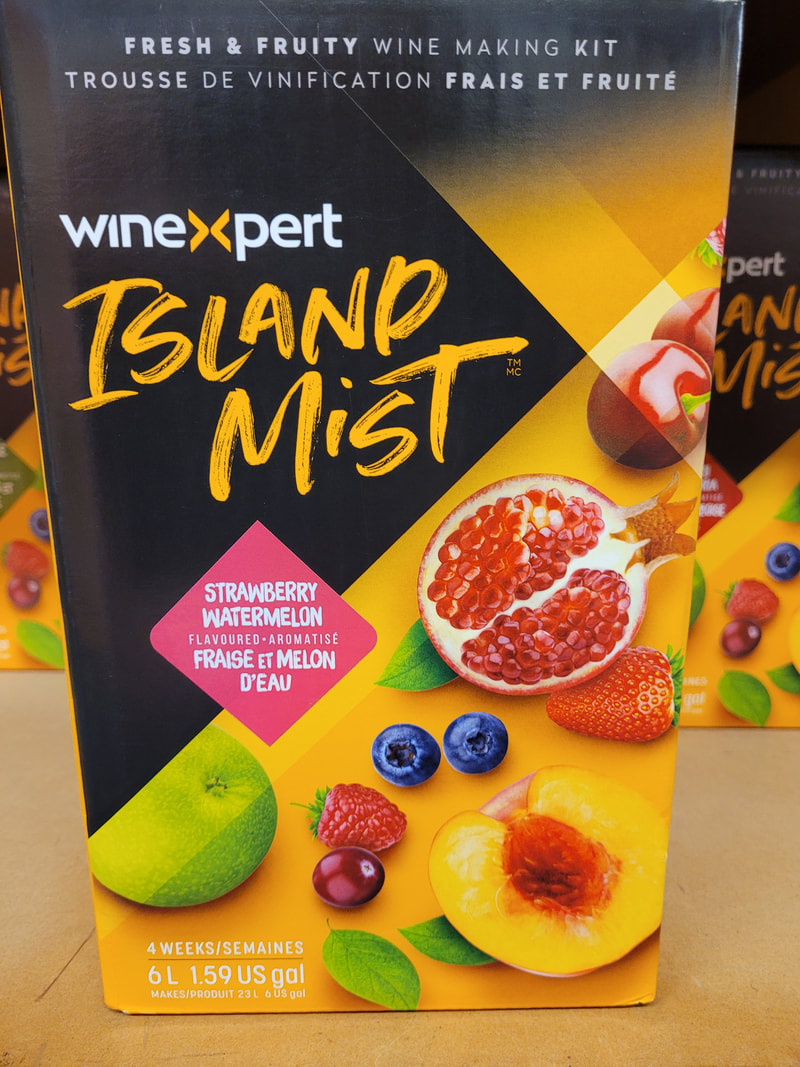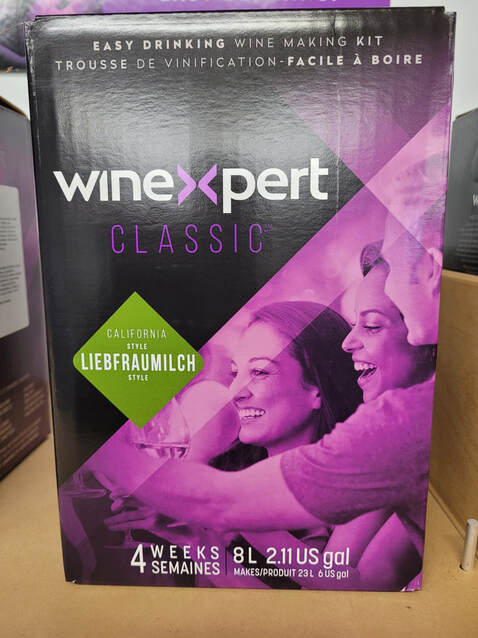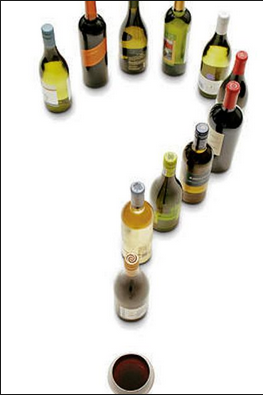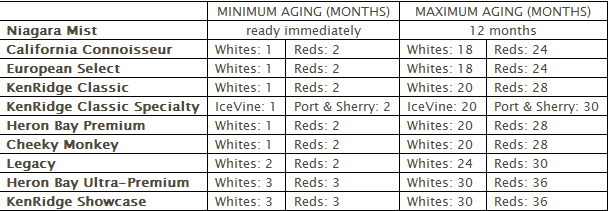FAQS
IN STORE MAKING QUESTIONS:
1. Do I need an appointment to make wine?
You don't need an appointment to start a batch but it might be a good idea to give us a call to make sure we have the kit you would like to put on.
2.When do I have to pay for my wine?
By law you need to pay at the time the batch is started.This is because it is illegal for us to sell the batch of wine to anyone else once it is started.
3.Can I bring my own bottles?
You can bring your own bottles.Make sure the inside of the bottle is rinsed out from old wine/debris. Avoid saving screw top bottles as they often break where the threading is on the glass when a cork is put in the bottle.
4.What does oak do to my wine?
Adding oak gives the wine the illusion of aging it in an oak barrel.
5. Can you make Sulphite Free Wine?
It is impossible to make sulphite free wine. Sulphites are created during the fermentation process. We do have a lower sulphite content than many commercially made wines though as we use the sulphite to sterilize our equipment but do not add it as a preservative.
6.Why can't I just wash my bottles in the dishwasher?
You can but the inside of the bottle is not cleaned properly. We recommend that you rinse your bottles after drinking the wine, remove the label and then place them in a box upside down. Our bottle washer in the store will sterilize and clean the inside of your bottles when you return to the store to bottle your next batch.
7.How should my wine be stored?
You should keep it in a dark place. Light will excite molecules and oxidizes your wine. It should be vibration free (storing wine under the stairs is not a good idea.) You should keep your wine bottles on their side so that the cork stays moist; otherwise the corks will dry out and allow unwanted air in.
AT HOME MAKING:
1.What does Potassium Sorbate do for my wine?
It inhibits the reproduction of yeast cells. It does not kill the yeast cells but it will prevent your wine from renewed fermentation. This is necessary for all wines, especially when you sweeten your wine before bottling.
2. What does the Bentonite do for my wine?
It is added at the start of the making process to provide a nucleation site to aid in fermentation. Bentonite also aids in the clearing process by attaching itself to particles in the wine and dragging them to the bottom of the fermentor.
3. My wine bottle has exploded, why?
The wine was not completely finished fermentation prior to bottling. You can avoid this from happening by using your wine hydrometer. The Specific Gravity reading should read 0.995 or below prior to bottling.
4. My wine has started to ferment again, why?
This happens when the wine is bottled before fermentation has completed. To avoid this from happening you should maintain the recommended fermentation temperature. It is very important to take a Specific Gravity Reading before bottling. This will tell you if your wine has finished fermentation (.0995 or below).
5. My wine tastes harsh but looks fine, why?
Your wine probably just requires more aging. Aging is a very important step in wine making.
8. What does Elderberries(red wine) and Elderflowers(white wine) do if I add them?
Elderberries add more color and aroma to the wine. Elderflowers adds aroma.
IN STORE MAKING QUESTIONS:
1. Do I need an appointment to make wine?
You don't need an appointment to start a batch but it might be a good idea to give us a call to make sure we have the kit you would like to put on.
2.When do I have to pay for my wine?
By law you need to pay at the time the batch is started.This is because it is illegal for us to sell the batch of wine to anyone else once it is started.
3.Can I bring my own bottles?
You can bring your own bottles.Make sure the inside of the bottle is rinsed out from old wine/debris. Avoid saving screw top bottles as they often break where the threading is on the glass when a cork is put in the bottle.
4.What does oak do to my wine?
Adding oak gives the wine the illusion of aging it in an oak barrel.
5. Can you make Sulphite Free Wine?
It is impossible to make sulphite free wine. Sulphites are created during the fermentation process. We do have a lower sulphite content than many commercially made wines though as we use the sulphite to sterilize our equipment but do not add it as a preservative.
6.Why can't I just wash my bottles in the dishwasher?
You can but the inside of the bottle is not cleaned properly. We recommend that you rinse your bottles after drinking the wine, remove the label and then place them in a box upside down. Our bottle washer in the store will sterilize and clean the inside of your bottles when you return to the store to bottle your next batch.
7.How should my wine be stored?
You should keep it in a dark place. Light will excite molecules and oxidizes your wine. It should be vibration free (storing wine under the stairs is not a good idea.) You should keep your wine bottles on their side so that the cork stays moist; otherwise the corks will dry out and allow unwanted air in.
AT HOME MAKING:
1.What does Potassium Sorbate do for my wine?
It inhibits the reproduction of yeast cells. It does not kill the yeast cells but it will prevent your wine from renewed fermentation. This is necessary for all wines, especially when you sweeten your wine before bottling.
2. What does the Bentonite do for my wine?
It is added at the start of the making process to provide a nucleation site to aid in fermentation. Bentonite also aids in the clearing process by attaching itself to particles in the wine and dragging them to the bottom of the fermentor.
3. My wine bottle has exploded, why?
The wine was not completely finished fermentation prior to bottling. You can avoid this from happening by using your wine hydrometer. The Specific Gravity reading should read 0.995 or below prior to bottling.
4. My wine has started to ferment again, why?
This happens when the wine is bottled before fermentation has completed. To avoid this from happening you should maintain the recommended fermentation temperature. It is very important to take a Specific Gravity Reading before bottling. This will tell you if your wine has finished fermentation (.0995 or below).
5. My wine tastes harsh but looks fine, why?
Your wine probably just requires more aging. Aging is a very important step in wine making.
8. What does Elderberries(red wine) and Elderflowers(white wine) do if I add them?
Elderberries add more color and aroma to the wine. Elderflowers adds aroma.
